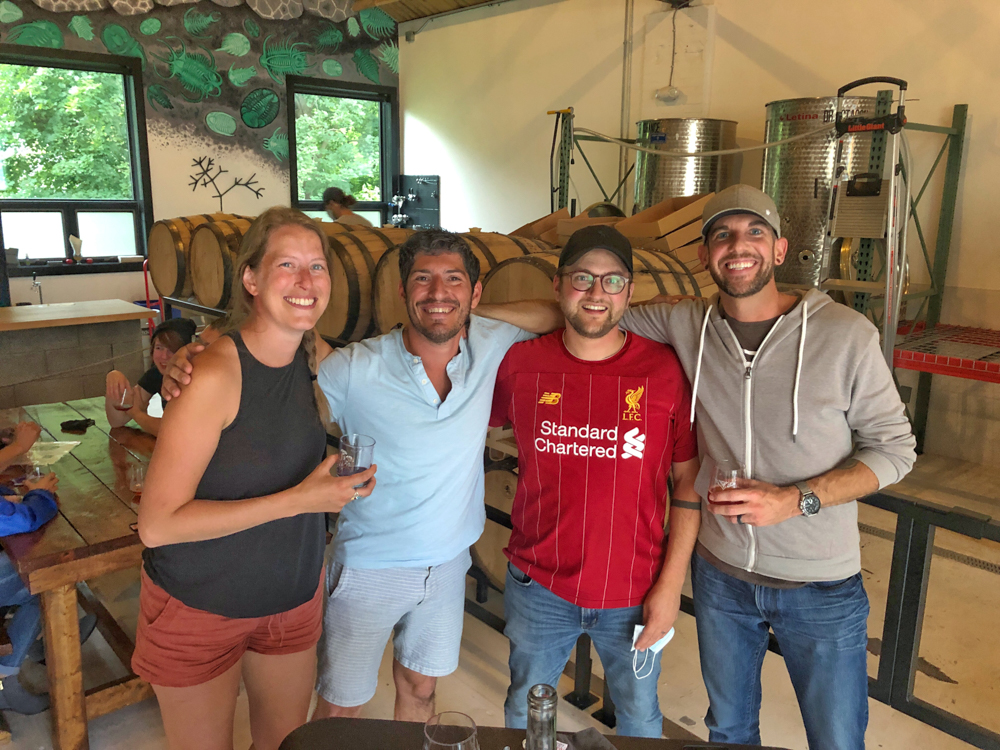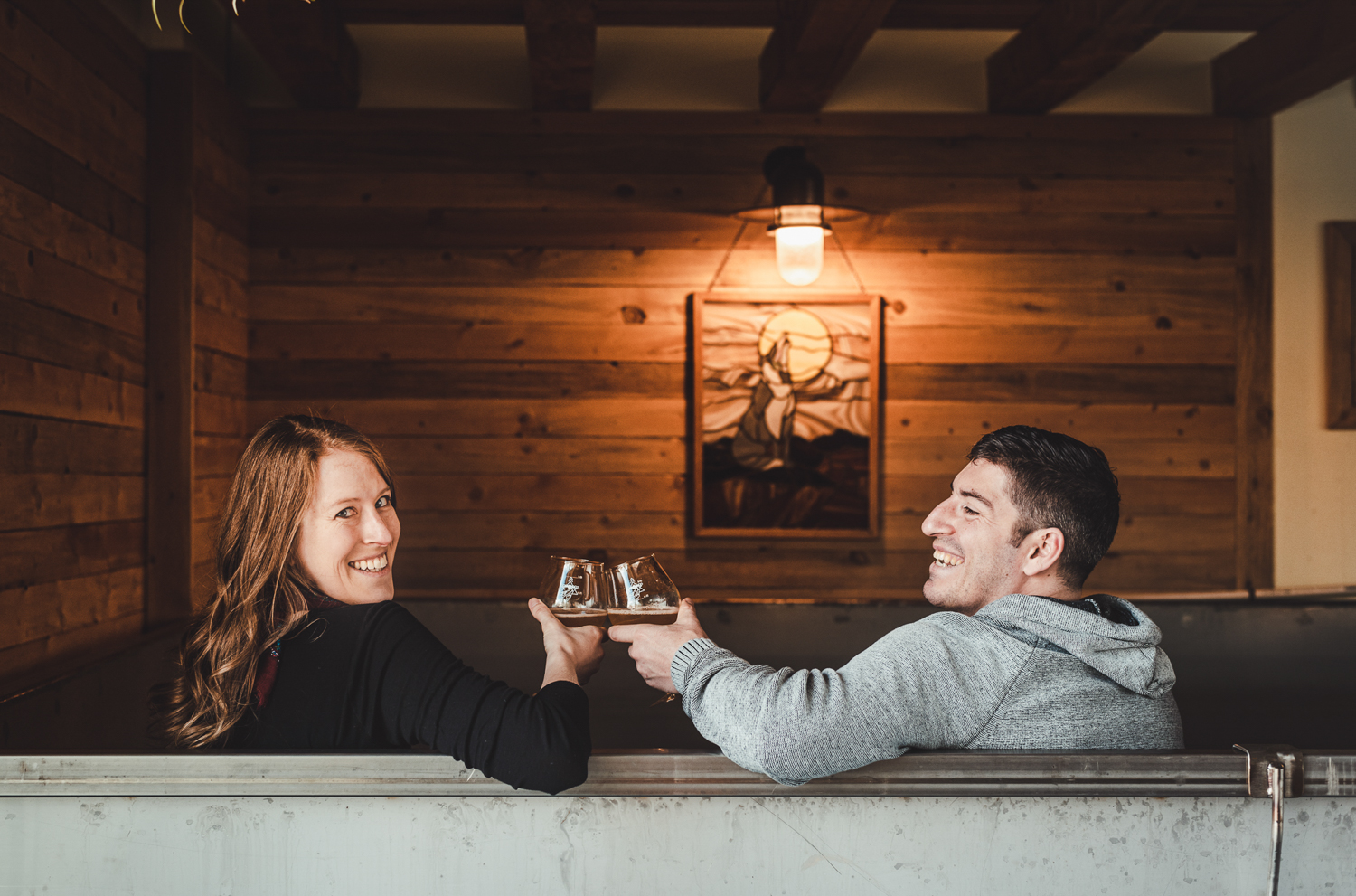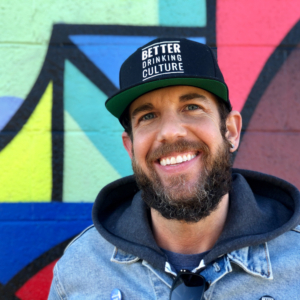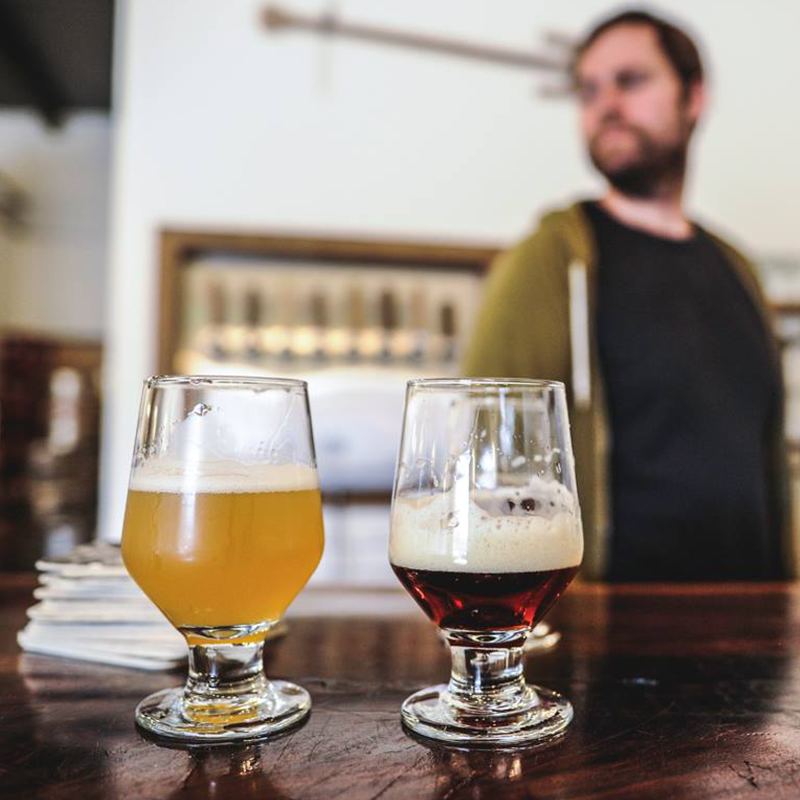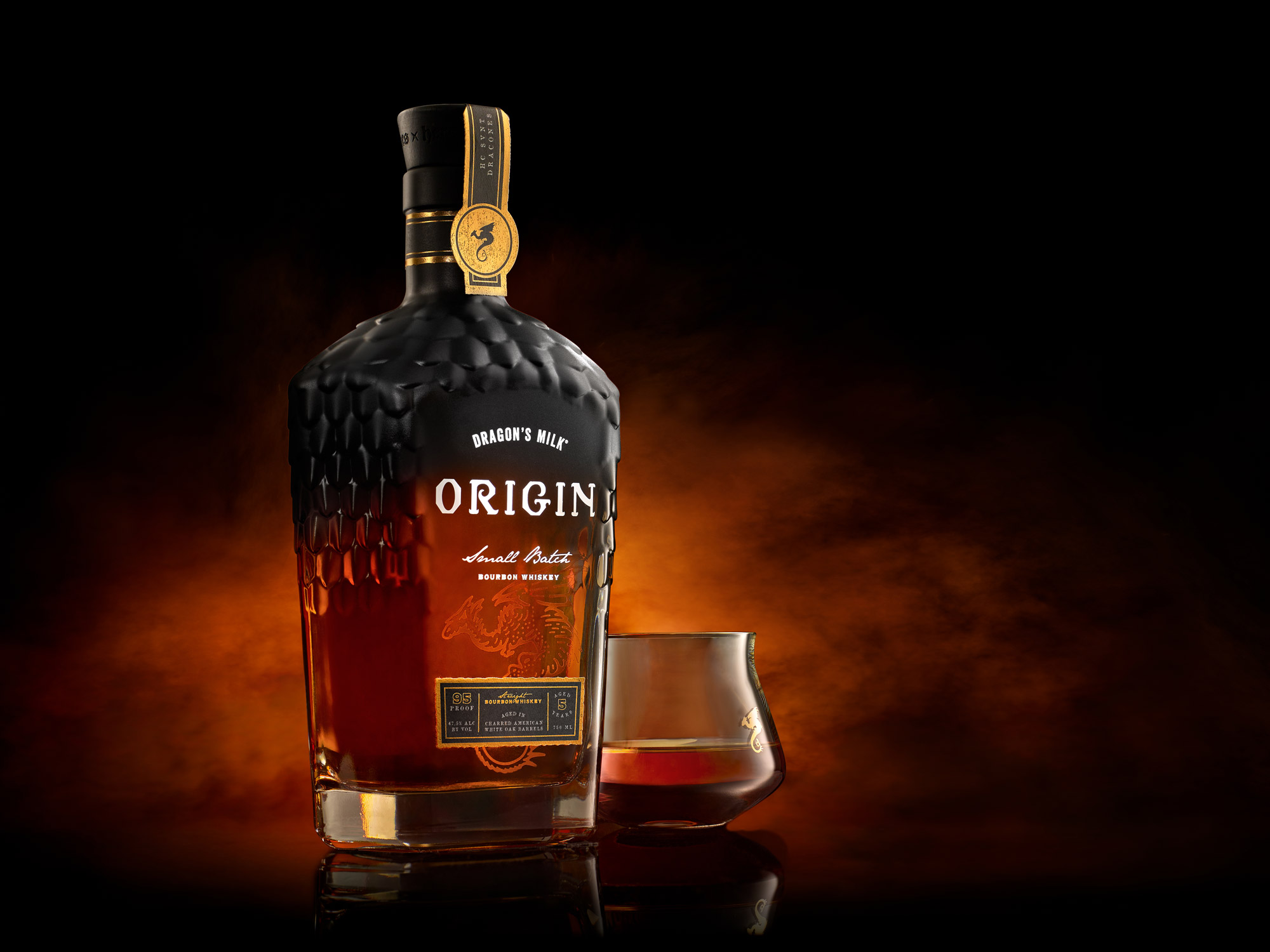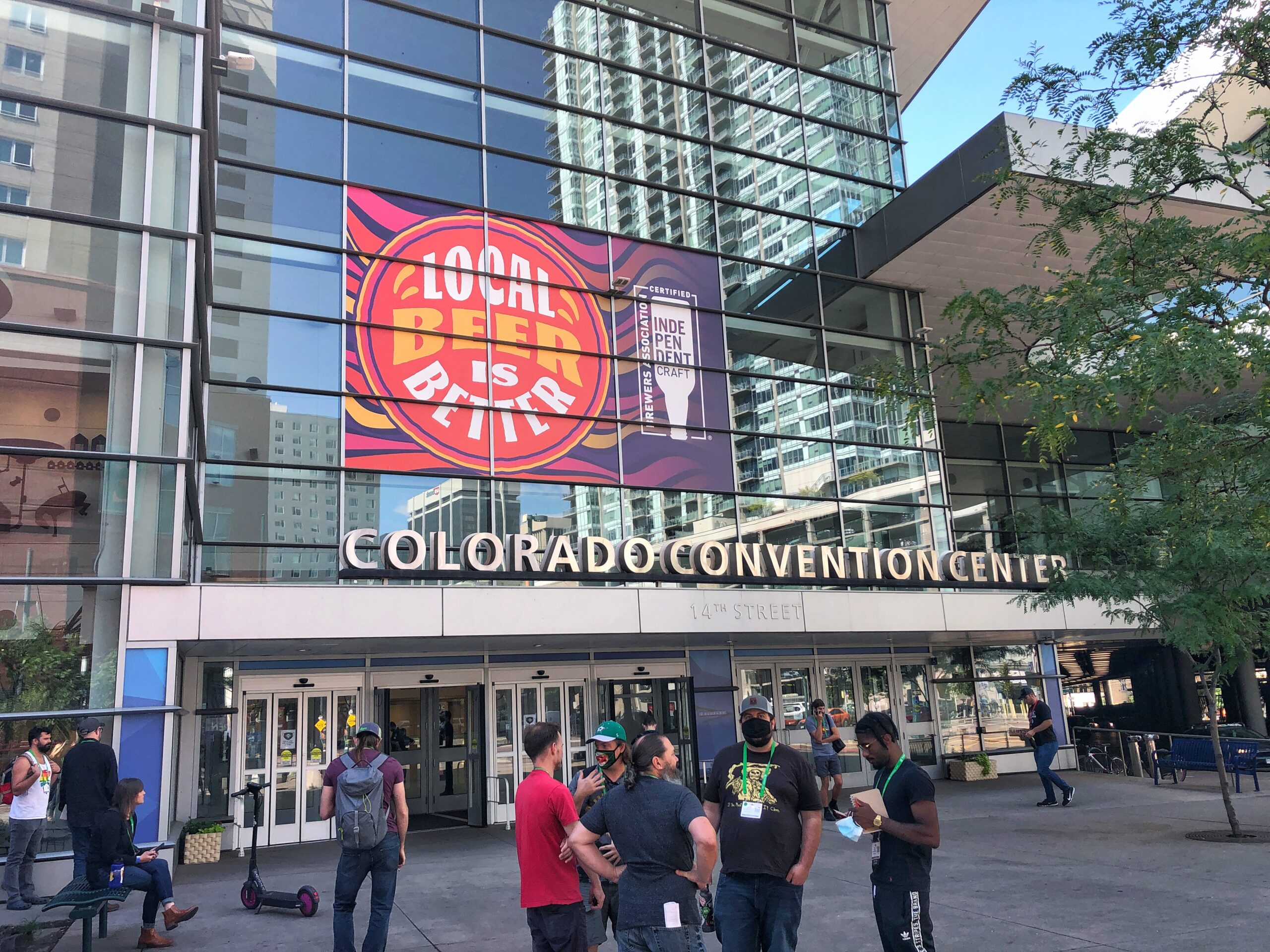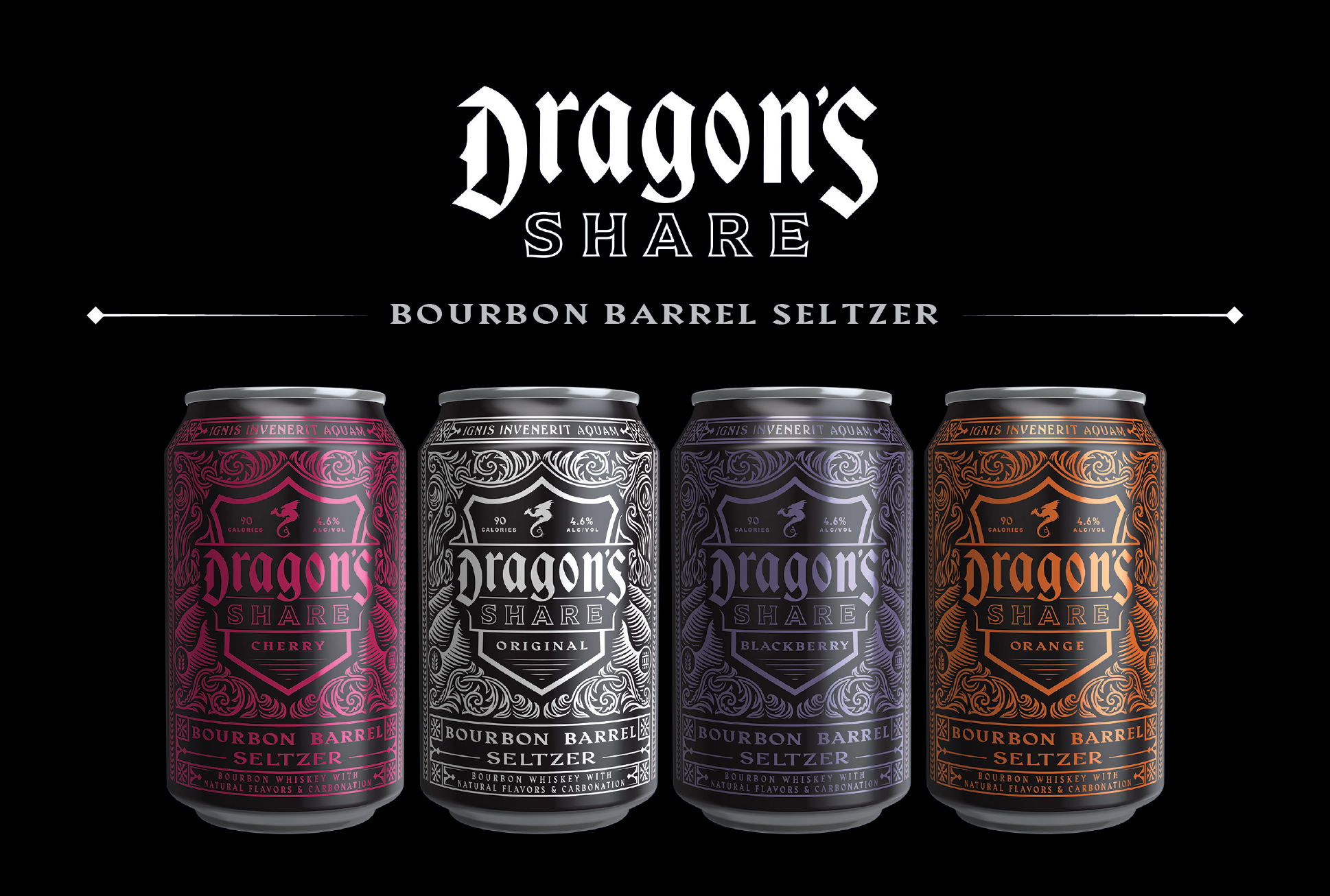Wife, Husband Owners Thrive on Work-Work Balance
This is not a history lesson in the dynamics of spontaneous fermentation. Nor does the plot hinge on the delicate vulnerability of relying on a koelschip. This is a story about a pair of fun, charming protagonists who fell in love during a “rocky” start and now operate the country’s only brewery focused solely on the “style” designation coined in 2017, Méthode Traditionnelle. Being at the mercy of such a method requires throwing a reasonable volume of caution to the literal wind. Juxtaposed against this allowance for leniency is that they do so with every bit of premeditation to balance its sometimes unpredictable, yet always wild, yield.
And, at first—it wasn’t even their day jobs.
Lisa and Brandon Boldt met in 2010 at Northern Arizona University, the weekend before starting their geoscience masters programs. Lisa, who Brandon admires as a keen pupil, arrived a week before orientation. Brandon, a self-described “adrift vagabond,” skipped it altogether.
Because they both had already gravitated toward alcohol, it makes sense that their chance encounter would happen at a popular, now-defunct Flagstaff drinking spot during the semester’s welcome week mixer.
Brandon began homebrewing in high school, and Lisa was known for taking frat guys to task while attending undergrad—educating them on beer styles beyond American light lagers. Once an item, the Boldts began homebrewing together. Tapping their best friend for feedback on a pilot batch, he admitted that what they brewed was, “the worst thing I’ve ever put in my mouth.” If they would’ve thrown in the towel then, they were bound for New Zealand to pursue their doctorates. Laughing now at the thought, Lisa would have been wearing pantsuits as an environmental consultant, and Brandon tweed blazers—not without suede elbow patches—professing his love for paleoclimatology.
After getting engaged in the spring of 2013, they closed a career door on a closet full of stuffy clothes and traded their passion for earth sciences for a more casual, organic lifestyle in brewhouses. And so they relocated to Colorado—an expansive region with an established, respected reputation for what they sought. Exploring the beer landscape of their new home, during what probably would’ve been one of their last known weekends of downtime, led them to Odd13 Brewing, which had just recently opened.
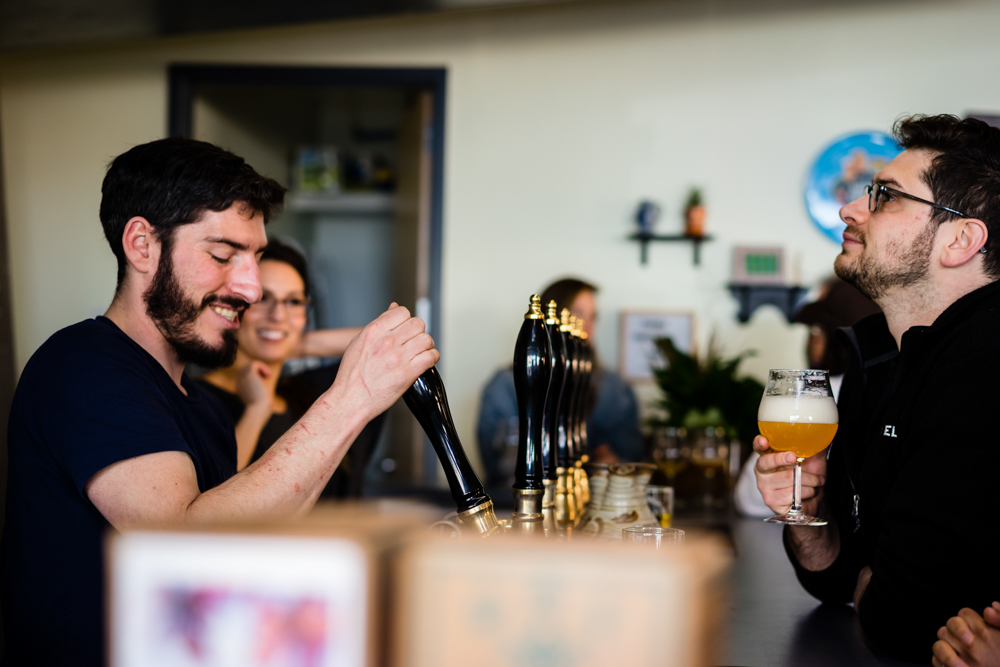
A positive first impression between Brandon and Kristin Scott, co-owner of Odd13 brewing, earned Brandon a part-time gig as a beer-tender and an overseer of their cellar. He became head brewer within a few months. After Lisa and Brandon exchanged their vows in June 2014, Lisa joined her husband at Odd13 and was soon promoted to taproom manager. Lisa’s voluntary bid to work alongside Brandon when there certainly was no shortage of alternative options, and his presumptive agreeance, should’ve been enough foreshadowing for what they both would confidently be signing up for next.
Less than a year later, Lisa proposed the ultimate stress test for any couple—open a business together. Her ambition and admirable trust in their young marriage evolved into their passion project, Primitive Beer. While Primitive was “a nebulous concept for many months following conception,” says Brandon, they knew three things: “This project was going to be specified, centered around oak and traditional Belgian processes. That if we were going to take the time and effort to open up yet another brewery in Colorado, it would have to, at worst, offer something unique to our market and, at best, progress our understanding of beer science. And, despite all the blood, sweat, and tears that would go into this endeavor, it had to also bring us sincere joy and fulfillment.”
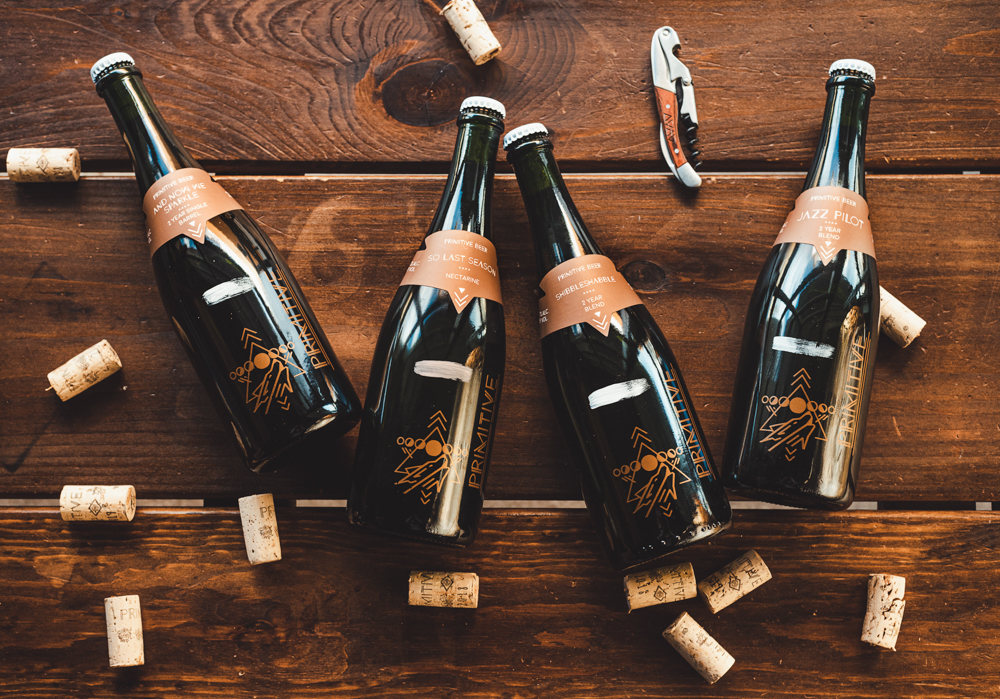
Considering the strict standards required to use the Méthode Traditionnelle certification mark, timing was—and still is—everything. In 2016, the Boldts had to juggle the logistics of breaking ground on their taproom and cellar while concurrently ensuring they didn’t miss the seasonal brewing window for their koelschip’s inaugural fill. They nailed both and opened on April 14, 2018 with a variety of year-old still (non-carbonated) beers, inspired by “flat” Lambic, showcasing different blends and refermentations on 2017 harvest Colorado fruits. Brandon says that a visit to their taproom is special, as “these beers are served ‘by box’ and from firkins through refurbished English beer engines. ‘Bag-in-Box,’ while not our invention, was certainly an early distinguishing characteristic of Primitive Beer, in addition to the Méthode Traditionnelle specificity.”
Immediately following Primitive’s one-year anniversary, they started bottling—layering blends of their more mature two-year-old stock, complemented with local, Colorado wildflower/alfalfa honey. In a “What in the hell do we have to lose?” moment, they submitted one of those first Gueuze-inspired blends, SchibbleSchabble, to 2019’s Great American Beer Festival. They won Silver—for good reason, I can attest. By weird circumstance, your author just happened to visit Primitive the day after GABF and was treated to an off-the-books pour before it was available to the public.
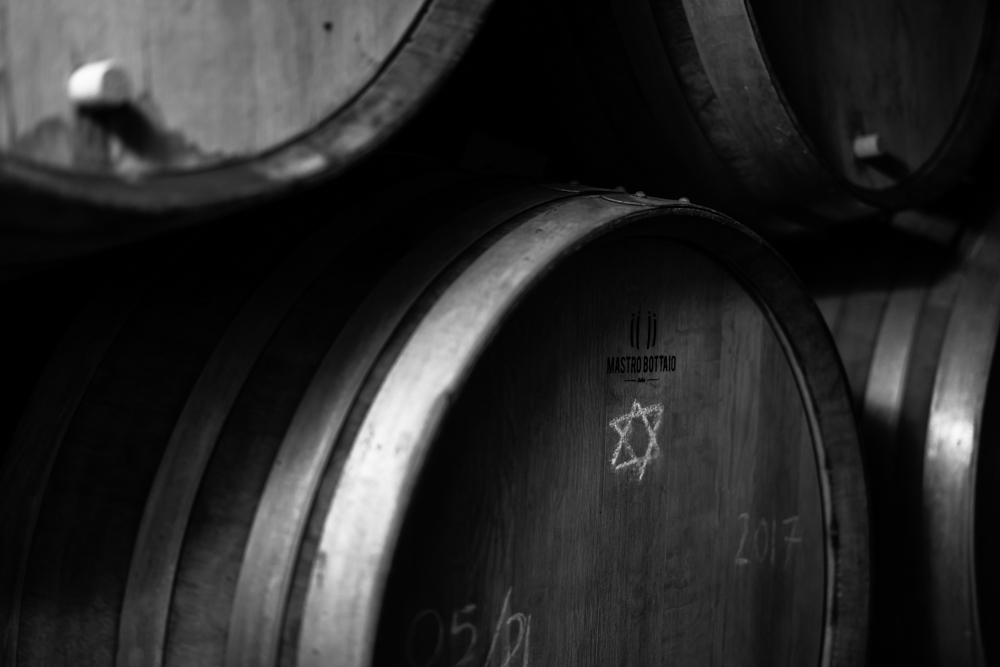
As with any brewery exposing itself to the natural elements via koelschip—a large, shallow fermenter that’s open to the air, where wild yeast and bacteria are invited to inoculate fresh wort—one should expect to experience some essence of the local terroir. So, how does a brewery describe their flagship offerings, which are mirrored after a historical beer style so ingrained and associated with all-elements Belgium, when they’re located in a “new urbanist” community, Prospect New Town, in Longmont, Colorado? To this Brandon says, “We believe our beers have as much variability in house character as compared to our Belgian favorites, as there is variability in terroir between various Lambic producers within Belgium alone. With so few local spontaneous-centric breweries, it’s really hard for us to say if our terroir is Colorado or Longmont-specific, and what component is specifically tied to our local microbes versus the selective pressures we apply through process and blending.”
It’s tough to tell the Boldts’ story without having to pause to acknowledge a parallel timeline. While all of this at Primitive was happening, Lisa and Brandon were working full-time gigs. Prior to press time, Lisa had been promoted to Market Developing Manager at Odd13, but subsequently had to leave (on good terms) to devote her attention to Primitive as it became increasingly demanding (read: popular). However, Brandon left Odd13 in late 2018—to do what else, but help develop a wild barrel program, Wild Provisions Beer Project, which opened May 2020 as a side project of 4 Noses Brewing Company.
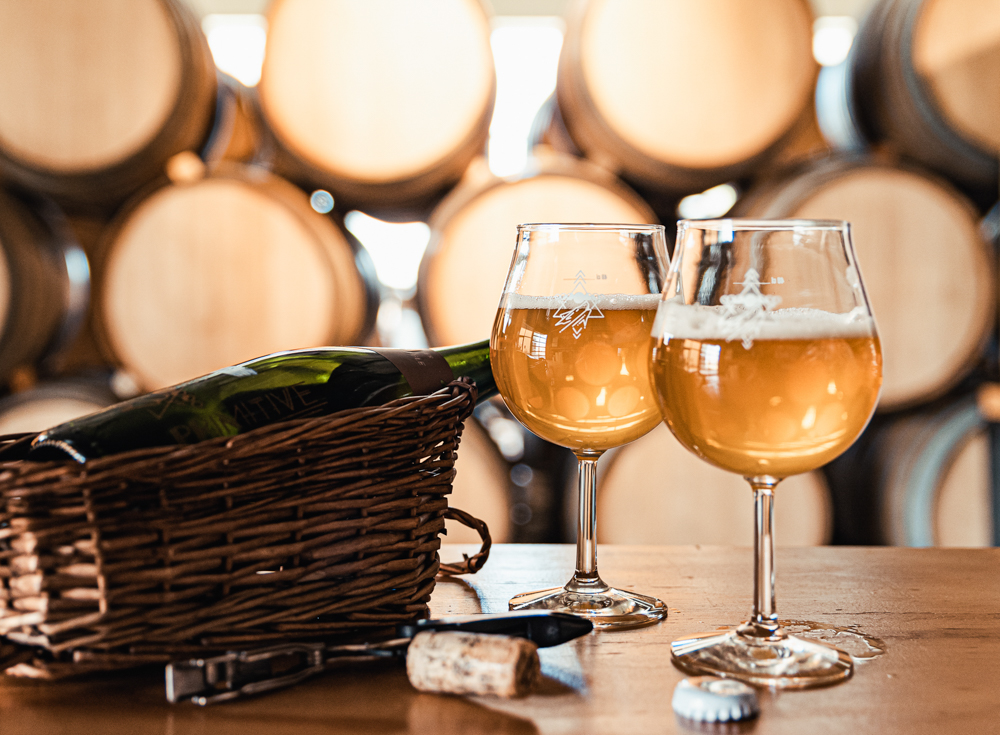
The reality of working two jobs to sustain ourselves isn’t uncommon these days. To pull off balancing the two, they were intentional about picking work outside of Primitive that was equally fulfilling. Lisa is genuine in her appreciation of the support they got from their respective employers’ “collaborative spirit and overall flexibility.” That grace they were afforded subsidized a subtlety that the Boldts used to crack the code on being in two places at once: choice.
Brandon recognizes its special value, and is eloquent in addressing it. “Choosing to run Primitive despite not relying on it to survive perhaps subconsciously frames our passion project as an artistic endeavor rather than a job,” says Brandon. Let’s keep in mind that although the Boldts are able to keep the lights on at Primitive, they’re not dipping the fixtures in gold. Asked what they might risk if they left their day jobs prematurely, Primitive would be vulnerable to becoming stripped of its appeal, withered down to an obligation. Brandon forecasts that scenario: “We’d likely be forced to make decisions based on economics and efficiency rather than passion and vision. Our business model knowingly trades time for the flexibility to be creative and put out a product that excites us.” He concludes in a way that makes it tough for anyone to argue: “We believe this model is the most sustainable with our current lifestyle and values.”
A typical day for them still seems longer than 24 hours. “We do our best,” says Lisa, “to balance everything with Primitive work. Brandon handles all the moving of barrels, beer, and equipment. I run our membership club, CSA (Community Supported Agriculture), our marketing ‘department’, our taproom, and the sales side of the business. Together we both contribute to blending, fruiting, and packaging. It all worked out pretty organically for us, collaborating our individual strengths and interests.”
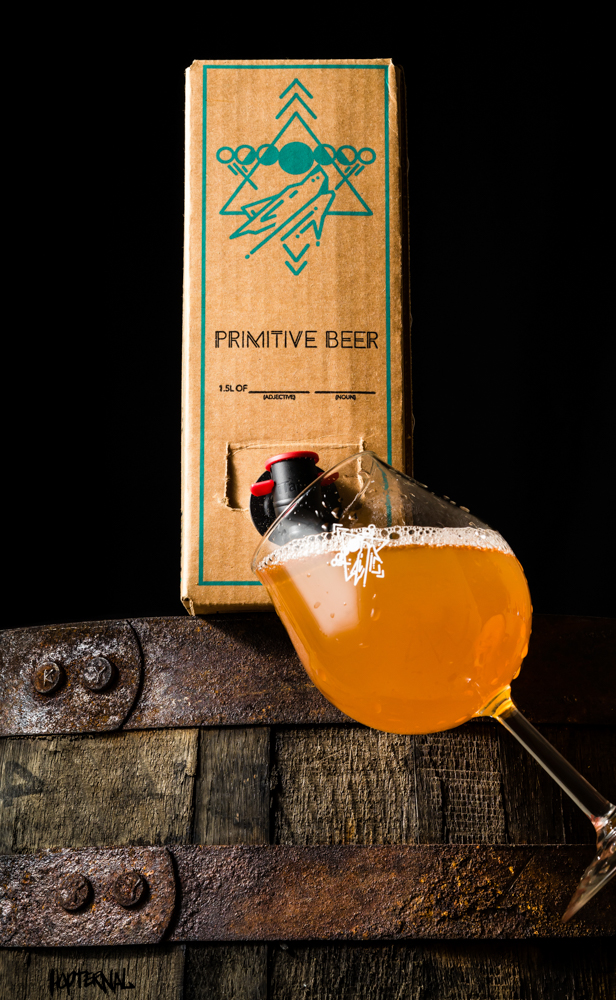
It seems like they’ve found a rhythm that works for them, but aren’t they worried about burning out?
Lisa admits that protecting time for themselves can be challenging. “There’s always work to be done, so taking time to specifically not work is hard for us to do. It’s so necessary to have that downtime to recharge and refresh, but we’re such workaholics that it’s rare we take the personal time.” It takes a special power couple to do this successfully, and they do tease that they’re “working on developing a healthier work-life balance.”
Their advice to others interested in a similar path is to be “really strong communicators. You’re likely going to always be working, always be worried about the business, and always together. It can take a lot out of you. If you can’t talk about what’s bothering you and what you’re worried about, you can’t move past roadblocks to reach the other side.” They advocate for “staying true to yourself and setting realistic and achievable goals,” but also being smart enough to know when to say, “When.” So far, they haven’t had to, and time will tell whether they ever do.
If and when that proverbial dust does settle, which will bring with it the untamed organisms floating above their koelschip that Primitive rely on, there’s little doubt that Lisa and Brandon will continue to thrive on the unpredictability of their beer’s expressive tranquility. There’s respect due in their efforts to honor tradition. And, in getting to know them, you can tell that their claim to “purposely never sacrifice quality for hype and quick recognition” is sincere. However, if they continue on their current trajectory, even if it’s not the one they imagined when they first met, they’re going to have a problem: the hype will find them—just like hungry microbes.
Editor’s update…
Shortly after interviewing Lisa and Brandon, they surprised us with a visit in our hometown, Grand Rapids, MI. While road-tripping back to Colorado from a rare and well-deserved vacation (Spoiler: They ARE human!), they detoured to visit fellow spontaneous fermentation trendsetters, Speciation Artisan Ales. Fortunately, Drinkible’s always in the neighborhood and was able to rendezvous on short notice. While this piece was already a wrap, Lisa and Brandon’s company in real life was the perfect cherry on top we’d be remiss to not mention.
